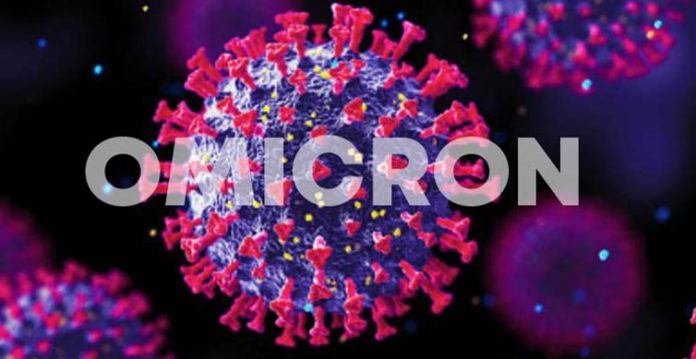The increased transmissibility of the Omicron variant from person to person has been shown, resulting in increased incidence and an increase in the positive sample rate, said South Africa’s Ministry of Health in a joint statement on results of Russian-South African Scientific Mission to study features of new coronavirus infection.
The scientists found that the increased transmissibility of the Omicron has resulted in the baseline reproductive rate increased to 2.5 in December, doubling time of 3.18-3.61 days. Meanwhile, the positive sample rate has increased to 35.5 percent with no indication of a more severe clinical course, Xinhua news agency reported.
“It was noted that young age groups played a significant role at the initial stage of the spread of infection. It was also shown that the densely populated Tshwane district, which includes the capital city of Pretoria and which is near to the economic hub of Johannesburg, was the location of the initial clusters of transmission of the genetic variant Omicron,” the statement released on Wednesday, said.
The scientists found that unvaccinated people with risk factors showed the variant to be more severe, especially among older age groups, among whom there was a high frequency (15-20 per cent overall) of reinfection, while vaccinated people exhibit a milder course of infection.
The Russian-South African scientific mission examined clinical and epidemiological features of Omicron in South Africa from December 13 to 22 as per an agreement between the presidents of Russia and South Africa.
ALSO READ: Omicron scare: Christmas, New Year celebrations banned in Delhi
As explained by the health department spokesperson Foster Mohale, the consultation was conducted in an environment of “openness” and “scientific interest” with a focus on developing both bilateral and multilateral cooperation within the BRICS to combat infectious diseases.
Twenty top Russian scientists and experts were involved in the mission, as were colleagues from several South African institutions. The experts were divided into three working groups during the mission, including epidemiological, virological and clinical experts who provided consultation on the full range of issues related to the control of the new coronavirus infection.
(This story has been sourced from a third-party syndicated feed, agencies. Raavi Media accepts no responsibility or liability for the dependability, trustworthiness, reliability, and data of the text. Raavi Media management/ythisnews.com reserves the sole right to alter, delete or remove (without notice) the content at its absolute discretion for any reason whatsoever.)







